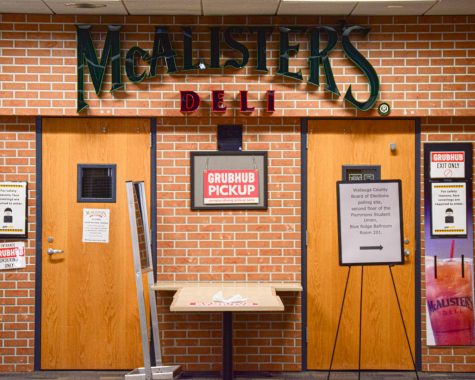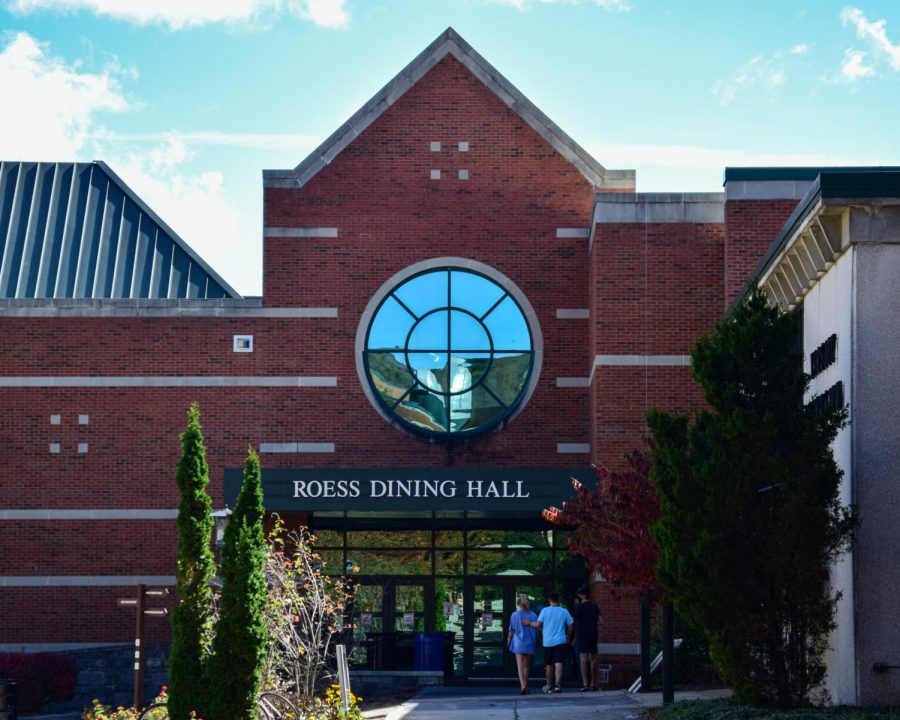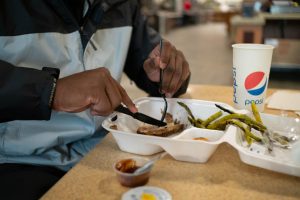App State closes three dining locations, lays off student employees
October 26, 2020
App State Campus Dining facilities have laid off at least 60 student employees and closed three dining locations.
Mcalister’s in Plemmons Student Union, Rivers Street Cafe in Roess Dining Hall and Wired Scholar in Belk Library were closed Oct. 6.
The part-time student employees who worked in these locations were laid off. But Chancellor Sheri Everts ensured that the full-time, permanent staff who worked in the three closed facilities were reassigned to other areas on campus, according to Pam Cline, director of Campus Dining.
“We’ve been working to minimize the impact on the 148 part-time, student employees,” said Cline.

Currently only 88 students are employed in Campus Dining facilities, according to a former student coordinator for Campus Dining who wished to be anonymous.
The recent closures only account for part of the layoffs. Students have been laid off from various Campus Dining locations throughout the semester.
Students who were laid off prior to the closures say managers cited lack of funds as the reason for their termination.
“I got an email from my manager that said basically ‘we can’t afford to keep you hired.’” said Lilly Leonard, former freshman employee at Park Place in Roess Dining Hall who was laid off a month ago.
The units closed for the same reason.
“We are a receipt-supported operation,” Cline said. “Unfortunately, with fewer students, faculty and staff on campus, we cannot currently sustain the operations of our three least-patronized dining facilities.”
Despite the closure of three Campus Dining locations, the food trucks on campus remain open. Student employees have pointed to the food trucks as an example of Campus Dining administrators’ mistakes.
“We realized they weren’t the best idea because they were closing their own units while still having outside businesses run on (Sanford Mall),” a former student coordinator said.
Campus Dining has not commented on whether operating food trucks on campus has impacted on the decline in campus facilities’ food sales.
Fewer students, faculty and staff on campus due to COVID-19 has led to a 41% decrease in food service transactions from previous years, according to Cline.
Student employees whom Campus Dining laid off still wonder how the university didn’t predict the reduced demand.
“Why are you looking to hire new people when you would have an idea from last semester, when COVID hit, how that impacted your ability to pay people?” Leonard said.
Campus Dining implemented a hiring freeze in late August, but before the school year started, people like Leonard were still being hired.
“At first (Campus Dining) were saying we were going to need more than the normal number of people, that’s why they were pushing us to hire so many people,” said a former student coordinator for Campus Dining.
The source said the student coordinator’s office was involved in hiring at least 100 people before the semester started, although a similar number quit because of COVID-19 concerns.
Initially, Campus Dining cut part-time student employees’ work hours and moved them to different dining locations to avoid laying them off. Additionally, Campus Dining attempted to implement a work study in late August. The goal was to provide student employees federal tuition aid as compensation instead of a Campus Dining funded hourly wage. However, most students did not qualify for work study, according to a former student coordinator for Campus Dining.
Individual locations began laying people off and an anonymous student who worked at the bookstore market had their hours cut. The following week their shift was cut entirely.
The source said when they arrived at work, their supervisor informed them their shift was being cut. They were not given a warning or time to look for another job.
“It’s stressful because I don’t live on campus. I have other bills that most people on campus don’t have to worry about,” said the former employee.
Cline said that Career Development is working with Campus Dining to support students who have been laid off through an interim employment coordinator.
“Kato Thompson is communicating directly with students who have been terminated, providing them information about available jobs on campus and other existing resources,” Cline said.
In her termination email, Leonard was provided with a link to other available jobs on campus, but was not given any references for securing an off-campus job. Other terminated employees described a similar experience.
“I was hung out to dry, they didn’t give me any references or anything. I had to start looking for a job immediately when I got home,” said the former bookstore market employee. “I reached out to the guy who hired me for the job at the market, but they didn’t have any more jobs on campus that fit with my schedule.”
Both Leonard and the other student have yet to find other forms of employment.
Pam Cline encourages students to use the presentation “How to Find a Part Time Job” and the Handshake portal in their search for work. She also names the Career Center as a resource for resume help.
















